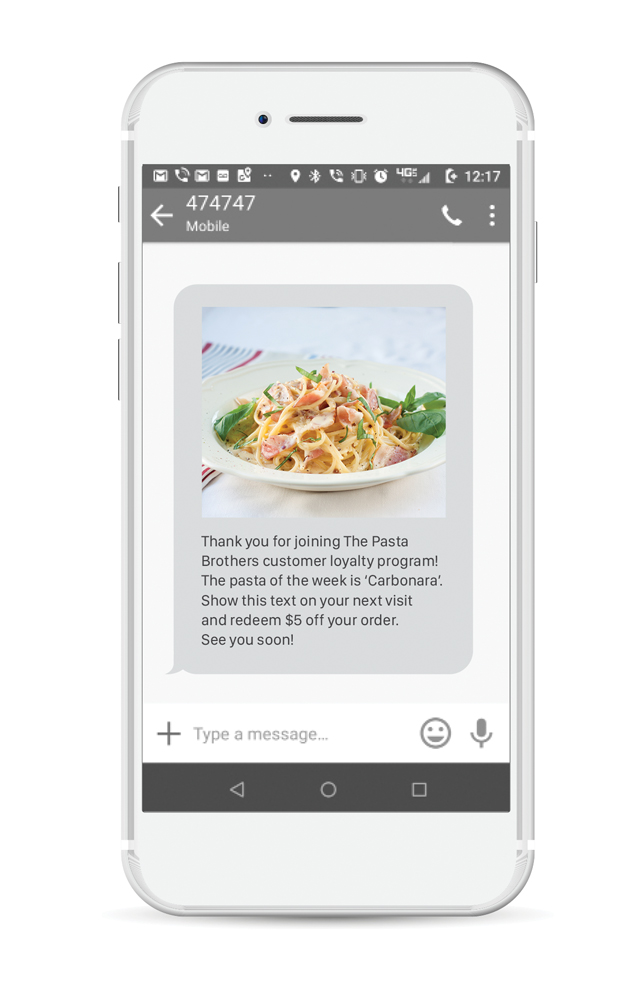These days, the best way to reach most people is in their pockets — that is, with a text message.
For advertisers, text message marketing is still relatively new ground, and the rules for what companies can and can’t send to people are still being worked out.
But local ad-tech outfits like Santa Monica-headquartered EZ Texting Inc., Beverly Hills-based IQX Corp. and MobileStorm Inc. in Encino are banking on the massive, captive audience of smartphone users. With so many eyeballs locked on screens, a simple text message ad has the potential to deliver significant results, they said.
“The engagement rates on text messages compared to other mediums are staggering,” said Norman Happ, chief executive of EZ Texting, whose clients include Home Depot Inc., Jackson Hewitt Tax Service Inc. and Domino’s Pizza Inc.
Happ said his firm’s text message ads have a 600% higher click-through rate than its email ads. “People respond 60 times faster to texts than emails,” he added.
According to a 2017 report from market analyst Zion Market Research Co., companies spent roughly $55 billion on text message marketing services in 2014. That’s expected to climb to $70 billion by next year, the report estimated.
New message alert
MobileStorm was founded in 1999, the same year technology was developed to allow companies to send bundles of text messages simultaneously to a wide range of recipients.
But companies were slow to adopt the advertising technology, MobileStorm Chief Executive Jared Reitzin said. It wasn’t until 2007, when “American Idol” began running its voting mechanism through texting apps, that the idea started to really catch on, he said.
Many companies stepped back from text message marketing, Reitzin said, after running into legal hurdles.
But Reitzin said many companies’ use of text message marketing has contracted after running into legal hurdles.
In 2013, the Federal Communications Commission amended the federal Telephone Consumer Protection Act to classify text-based marketing to be the same as a so-called “autodialer,” the software or device used to automatically dial phones. As a result, text marketing requires customers to opt in, and it’s restricted to the hours between 9 a.m. and 9 p.m.
Reitzin said the amendment “just wasn’t a very well-thought out law,” and he has advocated for a separate, text-focused law that fine-tunes the restrictions on marketing.
The issue is still a “a hotbed of litigation,” said Richard Newman, a compliance and defense attorney with law firm Hinch Newman. He said legal rulings on the issue have varied around the country regarding what technically counts as automated dialing, and that confusion can put companies at risk for fines or other sanctions.
“Text message marketers need to pay careful attention to a number of state and federal laws,” Newman said, including being transparent with consumers, asking for lawful consent and not misusing customer data, he added.
Last week, the FCC voted to allow cellphone service providers to block robocalls as long as they inform customers and allow them to opt out of the blocking.
Message received
Despite the legal complexities, Happ said consumers are primed for text message advertising because it’s efficient and direct. EZ Texting sells software that companies can use to send voice, SMS or individual one-to-one messages. The company was founded in 2004 and has raised $38 million to date including a $21 million series B round in June 2018.
“Texting is still so important for marketers because it’s platform agnostic,” Happ said. It “allows marketers to connect with audiences through a medium that is being used most frequently,” he said.
Sacha Spindler, chief executive of IQX which does business as IQX Amplify, said some of the legal requirements on text message marketing are part of what drives the higher engagement rates with consumers — when people opt into something, they’re more likely to pay attention.
“Once they understand who they’re receiving the message from, and they know (it’s) a brand they receive messages from regularly that they can trust, we find the customer engagement continuously gradually goes up, keeps people interested,” Spindler said.
IQX Vice President of Product Aidan Wright said the company has more than 200,000 subscribers ready to receive ads and roughly 5,000 advertising clients.
IQX Amplify was founded in 2015 and sells tickets to events via text message, working with ticketing services including Eventbrite Inc. and SeatGeek Inc.
“Customers are going to want the same type of conversation they have with a business as they do their friends and family,” said MobileStorm’s Reitzin. His company counts Wynn Resorts Ltd. and Overstock.com Inc. among its clients, and Reitzin recently spun off a new venture, MPulse Mobile Inc., that sends appointment alerts for the Kaiser Permanente Inc. health system.
“Everyone wants to talk about the killer app, but at the end of the day, the killer app is messaging,” Reitzin said.

